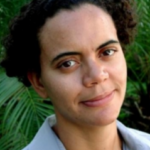Andrew L. Whitehead
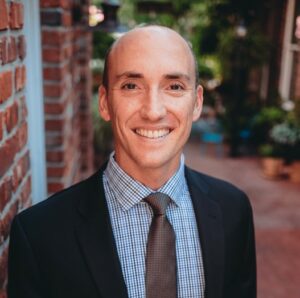 Andrew Whitehead is an Associate Professor of Sociology and Director of the Association of Religion Data Archives (theARDA.com) at the Center for the Study of Religion and American Culture at IUPUI.
Andrew Whitehead is an Associate Professor of Sociology and Director of the Association of Religion Data Archives (theARDA.com) at the Center for the Study of Religion and American Culture at IUPUI.
Whitehead is one of the foremost scholars of Christian nationalism in the United States. He is the author of American Idolatry: How Christian Nationalism Betrays the Gospel and Threatens the Church, which released August 2023 from Brazos Press. He is the lead author of Taking America Back for God: Christian Nationalism in the United States (Oxford University Press, 2020)—along with Samuel Perry—which won the 2021 Distinguished Book Award from the Society for the Scientific Study of Religion.
In recognition of these efforts, Whitehead was awarded the 2023 IUPUI Research Trailblazer Award and the 2023 Outstanding Tenure Track Faculty Award from the IUPUI School of Liberal Arts.
Whitehead is a sought-after speaker and has shared his work with diverse audiences: academic and public, religious and secular. Whitehead’s research on Christian nationalism has been featured across several national outlets including The New York Times, NPR, The New Yorker, The Washington Post, CNN Today, The Economist, Rolling Stone, and The Guardian. He has been interviewed on NBC News, National Public Radio, and the BBC, among others, and is routinely contacted for perspective on religion and politics from national and international news media. He has also written for The Washington Post, Time, NBC News, and the Religion News Service, among other outlets. Along with his work on Christian nationalism, Whitehead’s research also explores childhood disability and religion.
He is the author of fifty peer-reviewed journal articles. In 2019, his co-authored article “Make America Christian Again: Christian Nationalism and Voting for Donald Trump in the 2016 Presidential Election” (Sociology of Religion, 2018) won the Distinguished Article Award for both the Association for the Sociology of Religion and the Society for the Scientific Study of Religion.
Over his career, Whitehead has served as Principal Investigator or co-Principal Investigator on external research grants totaling over $7.3 million.
Whitehead serves as co-Director of the Association of Religion Data Archives (theARDA.com). The ARDA is the world’s largest online religion data archive and is currently funded through generous support from the Lilly Endowment and the John Templeton Foundation. Whitehead serves on the Board of Directors of the Public Religion Research Institute (PRRI.org) and the Religion Research Association.
From 2014 to 2020 Whitehead was a faculty member in the Department of Sociology, Anthropology, and Criminal Justice at Clemson University. While there he was awarded early promotion, with tenure, in 2019. He also received the College of Behavioral, Social and Health Sciences Award for Excellence in Research, Emerging Scholar (2017) and the College of Behavioral, Social and Health Sciences Associate Dean’s Recognition of Scholarship in Journal Publications (2018).
Professor Whitehead earned his bachelor’s degree in Psychology at Purdue University. He completed his Ph.D. in Sociology at Baylor University in 2012.
Andrew Whitehead’s CV can be found here.
Religion & Horror
October 20th, 2022
It’s October, the time of year when Americans celebrate Halloween and indulge their fascination with all things haunted, hideous, and horrifying. And what’s a common theme in the monster movies and spirit possession thrillers that are so popular this time of year? Religion! Whether we’re reading novels by Stephen King, revisiting classic films likeThe Exorcist, or watching new television shows like Midnight Mass, religion is everywhere in the horror genre. It’s the source of inspiration for many of the characters, plots, and imagery that make horror so compelling. At the same time, many Americans learn about religious people, ideas, and practices through horror. Join us for a thought-provoking discussion with an interdisciplinary panel of experts who will help us understand the enduring power of religion and horror in American popular culture.
Host
 Melissa Borja, Assistant Professor of American Culture at University of Michigan
Melissa Borja, Assistant Professor of American Culture at University of Michigan
Melissa Borja is Assistant Professor in the Department of American Culture and core faculty member in the Asian/Pacific Islander American Studies Program at University of Michigan. Her book Follow the New Way: Hmong Refugee Resettlement and Practice of American Religious Pluralism (Harvard) is forthcoming.
Panelists
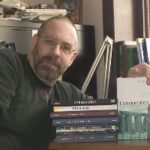 Douglas E. Cowan, Professor of Religious Studies and Social Development at the University of Waterloo
Douglas E. Cowan, Professor of Religious Studies and Social Development at the University of Waterloo
Douglas Cowan specializes in religion and film, television, and popular culture. His more recent works include Sacred Terror: Religion and Horror on the Silver Screen (Baylor), Sacred Space: The Quest for Transcendence in Science Fiction Film and Television (Baylor), America’s Dark Theologian: The Religious Imagination of Stephen King (NYUP), and Magic, Monsters, and Make-Believe Heroes: How Myth and Religion Shape Fantasy Culture (California University Press) . For many years he was a co-general editor of the premier journal of new religions study, Nova Religio, and chair of the New Religious Movements Group of the American Academy of Religion. He is a former Director of the Joint Laurier-Waterloo PhD Program in Religious Studies.
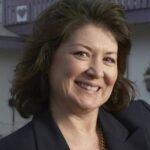 Erika Engstrom, Director of the University of Kentucky School of Journalism and Media
Erika Engstrom, Director of the University of Kentucky School of Journalism and Media
A nationally known gender and media scholar, Erika Engstrom holds extensive administrative experience, having previously served as the associate dean of the multidisciplinary Greenspun College of Urban Affairs and as acting general manager of the campus radio station, KUNV-FM, at the University of Nevada, Las Vegas. Areas of academic administrative expertise include enrollment management, event coordination, scholarships, and faculty development. She has published books and articles on the portrayal of gender, weddings, and religion in mass media including the book Television, Religion, and Supernatural: Hunting Monsters, Finding Gods (Rowman & Littlefield).
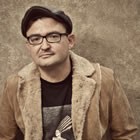 W. Scott Poole, Professor of History at the College of Charleston
W. Scott Poole, Professor of History at the College of Charleston
W. Scott Poole is the author or co-author of nine books, including Monsters in America: Our Historical Obsession with the Hideous and the Haunting (2011; revised edition 2018) that won the John Cawelti award for best textbook dealing with popular culture. He is a Bram Stoker Award nominee for his 2016 biography of H.P. Lovecraft, In the Mountains of Madness. His most recent book is Wasteland: The Great War and the Origins of Modern Horror (2018) looks at the lives of directors, artists, and writers who collectively created the culture of contemporary horror. Wasteland was chosen for “notable book” lists by The New York Post, The Toronto Free Star, and the Indie Booksellers“Indie Next” list. Poole’s work has appeared in the Washington Post, PopMatters, Jacobin, and People’s World,as well as in academic essay collections including, most recently, The Oxford Handbook of Edgar Allan Poe (2019). He tweets about horror and history @monstersamerica.
Religion & the Public Intellectual
September 28th, 2023
Over the last couple of years, the University, its curricula, and its responses to ongoing ideological debates have been under an intense microscope. This new reality has impacted every constituency on the university campus, but is has been particularly noteworthy for scholars whose work intersects with politics, activism, and community engagement. In this episode, a group of deeply engaged and outspoken scholars will address the role of being a public intellectual in politically fraught moments. Our panelists will discuss the ways that their latest works and discourse in the public sphere have placed them in an increasingly complex and unrelenting spotlight. Additionally, they will engage their process of creating more public and accessible works and the impact these works have on their relationship with the university, community partners, and the broader public. Join us for a conversation at the intersection of religion, activism, and the role of the public intellectual.
Click here for teaching resources for this video!
Click here for resources from the panelists!
Host
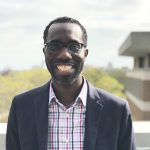 Joseph L. Tucker Edmonds, Associate Professor of Religious Studies and Africana Studies; Associate Director of the Center for the Study of Religion and American Culture, IUPUI
Joseph L. Tucker Edmonds, Associate Professor of Religious Studies and Africana Studies; Associate Director of the Center for the Study of Religion and American Culture, IUPUI
Professor Tucker Edmonds’ research interests are black and womanist theologies, alternative Christianities in the black Atlantic, and the role of scripture in African and African American religious traditions. Joseph has received grants from the Wabash Center for Teaching and Learning, the Fund for Theological Education, and the Woodrow Wilson Foundation. His most recent scholarship has focused on the relationship between alternative Christian movements and the Black body with a recent article entitled “The Canonical Black Body: Alternative African American Religions and the Disruptive Politics of Sacrality” in the journal Religions.
Panelists
 Monique Moultrie, Associate Professor of Africana Studies and Religious Studies, Georgia State University
Monique Moultrie, Associate Professor of Africana Studies and Religious Studies, Georgia State University
Dr. Moultrie’s scholarly pursuits include projects in sexual ethics, African American religions, and gender and sexuality studies. Her research has been supported by a Ford Foundation Postdoctoral Fellowship, a Wabash Center for Teaching and Learning Grant, a GSU Dean’s Early Career Award, and an American Academy of Religion Individual Research Grant. Her most recent book Hidden Histories: Faith and Black Lesbian Leadership was published by Duke University Press in March 2023.
 Mira Sucharov, Professor of Political Science, Carleton University
Mira Sucharov, Professor of Political Science, Carleton University
Dr. Mira Sucharov is the author of Borders and Belonging: A Memoir (Palgrave Macmillan, 2021), Public Influence: A Guide to Op-Ed Writing and Social Media Engagement (University of Toronto Press, 2019), and The International Self: Psychoanalysis and the Search for Israeli-Palestinian Peace (SUNY Press, 2005). She is co-editor (with Aaron J. Hahn Tapper) of Social Justice and Israel/Palestine: Foundational & Contemporary Debates (University of Toronto Press, 2019), and (with Eric Van Rythoven) Methodology and Emotion in International Relations: Parsing the Passions (Routledge, 2019). She is currently writing a dual travel-memoir with Omar M. Dajani on space, place and emotion in Israel/Palestine, and they are developing a podcast on the past and future of Jaffa, called “The Vacant Lot.”
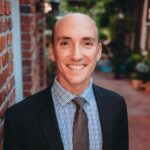 Andrew L. Whitehead, Associate Professor of Sociology; Director of the Association of Religion Data Archives, IUPUI
Andrew L. Whitehead, Associate Professor of Sociology; Director of the Association of Religion Data Archives, IUPUI
Whitehead is one of the foremost scholars of Christian nationalism in the United States. He is the lead author of Taking America Back for God: Christian Nationalism in the United States (Oxford University Press, 2020)—along with Samuel Perry—which won the 2021 Distinguished Book Award from the Society for the Scientific Study of Religion. His next book, American Idolatry: How Christian Nationalism Betrays the Gospel and Threatens the Church, will appear August 15, 2023 from Brazos Press. Whitehead is a sought-after speaker and has shared his work with diverse audiences: academic and public, religious and secular. Whitehead’s research on Christian nationalism has been featured across several national outlets including The New York Times, NPR, The New Yorker, The Washington Post, CNN Today, The Economist, Rolling Stone, and The Guardian.
8th Biennial Graduate Presentations
Graduate Presentations8th Biennial Conference on Religion & American Culture
At this year’s Biennial Conference, we are once again pleased to invite advanced graduate students to present on their research at the opening night dessert reception sponsored by the Center’s journal, Religion and American Culture: A Journal of Interpretation. Up to 10 graduate students will be selected to provide 3-4 minute mini-presentations describing their project and the import and impact of their work on American religion. The journal seeks to publish work that revises or considerably extends our understanding of the relationship between religion and other aspects of American culture, so presentations need to focus on that goal.Following the presentations, the graduate students will receive feedback and engagement from senior scholars as well as the other attendees of the conference. The graduate students who are chosen for the Emerging Scholars panel will receive a year-long subscription to the journal. Most importantly, the Emerging Scholars panel will provide the graduate student attendees the opportunity to connect with other graduate students across the country and share their research with interdisciplinary thinkers and practitioners in the fields of American studies and religion. For full consideration, graduate students must submit their 300-400 word submission by 11:59p ET on March 22, 2024.
Brian Steensland
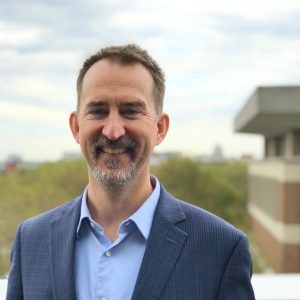
Brian Steensland is Professor and Chair of Sociology at Indiana University-Purdue University Indianapolis (IUPUI). His areas of interest include religion, culture, politics, and civic life in contemporary American society. His books include Situating Spirituality: Context, Practice, and Power (Oxford, 2022), co-edited with Jaime Kucinskas and Anna Sun; The New Evangelical Social Engagement (Oxford, 2014), co-edited with Philip Goff; and The Failed Welfare Revolution: America’s Struggle over Guaranteed Income Policy (Princeton, 2008). His articles include “The Measure of American Religion” (Social Forces, 2000) and “Cultural Categories and the American Welfare State” (American Journal of Sociology, 2006). (For additional information, see briansteensland.com.)
Steensland’s current research focuses on contemporary spirituality and religious pluralism.
He serves on the Editorial Board of the Journal for the Social Scientific Study of Religion and has served on Council for the Society for the Scientific Study of Religion and as Chair of the Sociology of Religion section for the American Sociological Association. He is a Research Director at the Center for the Study of Religion and American Culture. From 2016-2020, he was Director of IU’s Consortium for the Study of Religion, Ethics, and Society.
Steensland has taught undergraduate courses on sociology of religion, social problems, social theory, and introduction to sociology, and graduate seminars on sociological theory, sociology of religion, cultural analysis, political sociology, and textual analysis. He has twice won Indiana University’s Trustee’s Teaching Award and also received the Edwin H. Sutherland Excellence in Teaching Award.
From 2002 to 2014, Steensland was Assistant and Associate Professor in the sociology department at Indiana University-Bloomington. He received his PhD in sociology from Princeton University in 2002.
Teaching Resources
In public elementary and secondary institutions, teachers face many challenges in discussing religion in the context of American history, government, literature, and other areas. Parents with strong beliefs may object to the presentation of religious points of view they don’t share. Parents who believe in secular education may object to religion being discussed at all. The objective, of course, is to teach about religion without teaching religion.
College students can also have difficulty objectively interpreting religious content. Because American religious practice has played an integral role in the development of the nation, its government, its literature, and its politics, it is vital to introduce students to this perspective.
The Center is pleased to share instructional materials developed by its researchers and participating scholars for use in the classroom. From college syllabi and instructional videos to activities and helpful blogs, these materials help educators incorporate religious topics in the classroom.
- YSAR syllabi provide cutting-edge approaches to teaching new generations of students about religion’s role in North American life.
- World Religions modules offer examples of how general education courses at a local community college can incorporate American religious traditions and culture into curricula.
- The ARDA, now part of the Center for the Study of Religion and American Culture, hosts Teaching Tools that include interactive online learning activities, historical timelines, lesson plans, a religion dictionary, and other resources for teachers and students of all levels.
Please consider adding to our collection by submitting your best resources for teaching about religion in North America.
Melissa Borja
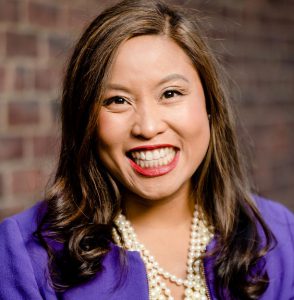 Melissa Borja is Assistant Professor of American Culture at the University of Michigan, where she is a core faculty member in the Asian/Pacific Islander American Studies Program. She researches migration, religion, politics, pluralism, and race in the United States and the Pacific World, with special attention to how religious beliefs and practices have developed in the context of the modern American state. Her book, Follow the New Way: Hmong Refugee Resettlement and the Practice of American Religious Pluralism (under contract, Harvard University Press) explores the religious dimensions of American refugee care. An avid public scholar, Dr. Borja is a senior advisor to Princeton University’s Religion and Forced Migration Initiative , a national program that aims to improve understanding of the role that religion plays in the lives of refugees as they resettle in the United States. She is an affiliated researcher with the Stop AAPI Hate Reporting Center, which unites scholars and community organizations to analyze and prevent hate incidents targeting Asian Americans and Pacific Islanders. She is part of a national research team that received support from the Louisville Institute to study Filipino American theology and religious life during the Covid-19 pandemic. Finally, she contributes regularly to the religious history blog, Anxious Bench. Dr. Borja was named a 2020-20201 Faculty Fellow at the Charles Warren Center for Studies in American History at Harvard University and a 2018-2019 Young Scholar in American Religion. She earned a Ph.D. in History from Columbia University, an M.A. from the University of Chicago, and an A.B. from Harvard University.
Melissa Borja is Assistant Professor of American Culture at the University of Michigan, where she is a core faculty member in the Asian/Pacific Islander American Studies Program. She researches migration, religion, politics, pluralism, and race in the United States and the Pacific World, with special attention to how religious beliefs and practices have developed in the context of the modern American state. Her book, Follow the New Way: Hmong Refugee Resettlement and the Practice of American Religious Pluralism (under contract, Harvard University Press) explores the religious dimensions of American refugee care. An avid public scholar, Dr. Borja is a senior advisor to Princeton University’s Religion and Forced Migration Initiative , a national program that aims to improve understanding of the role that religion plays in the lives of refugees as they resettle in the United States. She is an affiliated researcher with the Stop AAPI Hate Reporting Center, which unites scholars and community organizations to analyze and prevent hate incidents targeting Asian Americans and Pacific Islanders. She is part of a national research team that received support from the Louisville Institute to study Filipino American theology and religious life during the Covid-19 pandemic. Finally, she contributes regularly to the religious history blog, Anxious Bench. Dr. Borja was named a 2020-20201 Faculty Fellow at the Charles Warren Center for Studies in American History at Harvard University and a 2018-2019 Young Scholar in American Religion. She earned a Ph.D. in History from Columbia University, an M.A. from the University of Chicago, and an A.B. from Harvard University.
K-12 Resources
American religious practice and history informs our understanding of American history, government, literature, and many other fields of study. Yet many elementary and secondary educators are not sure how to incorporate this material into their lesson plans.
In 2010, the Center hosted a National Endowment for the Humanities (NEH) Summer Institute on the role of religion in American history. Twenty-four teachers from across the nation partnered with nationally renowned scholars to explore this topic and develop classroom materials based on what they learned. All of the materials produced for the K-12 program can be found below.
Enter a keyword above to search our resources or view them all below.
kết quả bóng đá trực tiếp, cập nhật tỷ số mới nhất đêm qua và rạng sáng nay,hơn 1000+ kết quả bóng đá trong ngày mới nhất.Lịch Thi Đấu Bóng Đá.Ketquabongda cung cấp các chương trình phát sóng trực tiếp bóng đá và nba miễn phí, đồng thời đưa tin toàn diện về thông tin Giải bóng đá Vô địch Quốc gia Việt Nam, Giải bóng đá Ngoại hạng Anh- cũng như các tin tức và tỷ số khác của đội.
ketquabongda.tw
KQBD-Kết Quả Bóng Đá Trực Tuyến Hôm Nay
KQBD Trực Tuyến Hôm Nay
FIFA World Cup-Manchester United Football Club-Real Madrid VS Barcelona
NBA
kết quả nba-NBA live-NBA SCORE
Religion & Conspiracy
November 18, 2021
Religious participation in conspiracy theories has received increased attention in both scholarship and public discourse lately. As a result, a number of key questions have emerged: Why are some worldviews described as conspiratorial when others are seen as rational, or at least unthreatening? Are conspiracy theories in the body politic a problem to be solved as well as a phenomenon to be understood? What are the material, social, intellectual, and class conditions under which conspiracy theories arise and are transformed? How can religious studies understand and influence public invocations of terms like “conspiracy,” “cult,” etc.? This panel discussion will examine these and other questions in light of what many argue is a recent intensification of the connection between religion and conspiracy theories, particularly in the United States. Join humanities and social science scholars for a conversation at the intersection of religion, the state, and conspiracy.
Cohosts
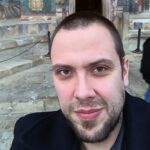 Robert Saler, Associate Dean and Research Professor of Religion and Culture, Christian Theological Seminary; Director of the Center for Pastoral Excellence and the Lilly Endowment Clergy Renewal Program
Robert Saler, Associate Dean and Research Professor of Religion and Culture, Christian Theological Seminary; Director of the Center for Pastoral Excellence and the Lilly Endowment Clergy Renewal Program
Robert Saler serves as Research Professor of Religion and Culture, Associate Dean for Evaluation, and Executive Director of the Center for Pastoral Excellence at Christian Theological Seminary (CTS) in Indianapolis. As part of that call, for the past eight years he has directed the Lilly Endowment Clergy Renewal Programs, which are administered by the seminary on behalf of the Endowment. Prior to coming to CTS he was pastor of Bethel Lutheran Church in Gary, IN and also taught at the Lutheran School of Theology at Chicago (from which he received his Ph.D. in 2011). His first book, Between Magisterium and Marketplace, deals with issues of ecclesiology and theological creativity, while his second book (Theologia Crucis) examines how the theology of the cross impacts global theological literature. He is also the author of All These Things Into Position: What Theology can Learn from Radiohead, Planning Sabbaticals: A Guide for Congregations and Their Pastors, and Sounding the Sacred: Arvo Part and Spirituality(co-edited with Peter Bouteneff and Jeffers Engelhardt).
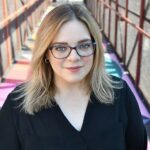 Sarah Riccardi-Swartz, Postdoctoral Fellow, Center for the Study of Religion and Conflict, Arizona State University
Sarah Riccardi-Swartz, Postdoctoral Fellow, Center for the Study of Religion and Conflict, Arizona State University
Sarah Riccardi-Swartz is Postdoctoral Fellow in the Recovering Truth: Religion, Journalism, and Democracy in a Post-Truth Era project at the Center for the Study of Religion and Conflict (Arizona State University). She has a Ph.D. in Sociocultural Anthropology from New York University. After completing an honors B.A. and M.A. in Religious Studies (American religions) at Missouri State University, she attended NYU to study and research religion and politics in the United States from an anthropological perspective. Along the way, she obtained a graduate certificate in Culture and Media (ethnographic filmmaking) and an M.Phil in Anthropology from NYU. Her research focuses on conservative politics, race, media worlds, exvangelicals, and Orthodox Christianity.
Panelists
Candace Rondeaux, Professor of Practice at the School of Politics and Global Studies and Senior Fellow with the Center on the Future of War at Arizona State University
Candace Rondeaux is Professor of Practice at the School of Politics and Global Studies and Senior Fellow with the Center on the Future of War at Arizona State University. A veteran analyst of the conflict in South Asia and expert on U.S. and international security affairs, she has served as a strategic advisor to the U.S. Special Inspector General for Afghanistan Reconstruction and senior program officer at U.S. Institute of Peace where she launched the RESOLVE Network, a global research consortium on violent extremism. An expert on security sector reform, governance, and electoral politics in conflict settings, she spent five years living and working in South Asia where she served as South Asia bureau chief for The Washington Post and as senior analyst on Afghanistan for the International Crisis Group. Her research interests include the dynamics of sectarian violence, governance and political Islam in modern Muslim majority states, Soviet and post-Soviet affairs and post-conflict reconstruction.

David Robertson, Lecturer in ReligiousStudies at The Open University; co-founder of the Religious Studies Project; co-editor of Implicit Religion
David Robertson is Lecturer in Religious Studies at the Open University, Co-Founder of the Religious Studies Project, and Co-Editor of the journal Implicit Religion. His work applies critical theory to the study of alternative and emerging religions, and to “conspiracy theory” narratives. He is the author of UFOs, the New Age and Conspiracy Theories: Millennial Conspiracism (Bloomsbury 2016) and co-editor of After World Religions: Reconstructing Religious Studies (Equinox 2016) and the Handbook of Conspiracy Theories and Contemporary Religion (Brill 2018).
https://youtu.be/ZR1faCj4zbw
Conference Proceedings
2022 Proceedings: Seventh Biennial Conference on Religion and American Culture
2019 Proceedings: Sixth Biennial Conference on Religion and American Culture
2017 Proceedings: Fifth Biennial Conference on Religion and American Culture
2015 Proceedings: Fourth Biennial Conference on Religion and American Culture
2013 Proceedings: Third Biennial Conference on Religion and American Culture
2011 Proceedings: Second Biennial Conference on Religion and American Culture
2009 Proceedings: First Biennial Conference on Religion and American Culture
